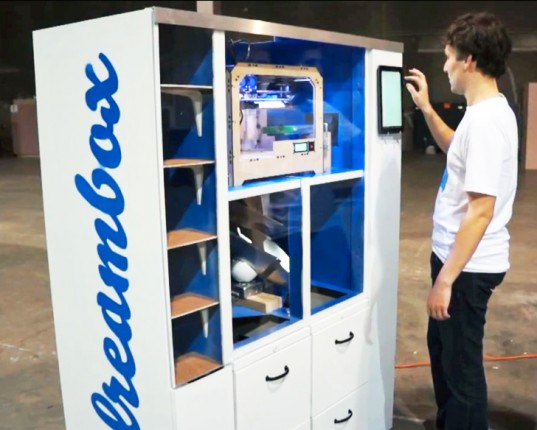Introducing the Dreambox

The Dreambox, a fabrication vending machine designed by industrial engineering and operations research Senior Will Drevno along with Haas Berkeley alumni David Pastewka and Richard Berwick, uses off-the-shelf fused deposition processes to print plastics as 3D objects. The co-founders hope that by making the Dreambox easily accessible as hyperlocal manufacturing, it will unleash a new wave of creativity and innovation.
“Dreambox is looking to make 3D printing more accessible, not only to just engineers, but anyone interested in the technology, “ Drevno says.
Through Dreambox’s website, users upload design files to the company’s cloud-based queuing system. Users may also select from a list of stock designs. The average print usually costs around $15, but can range higher or lower depending on the size and complexity of the project. Once a print is complete, the user receives a code from the Dreambox team to unlock a drawer in the machine containing the printed object, which the user can pick up when convenient.
“So far, the most popular item has been custom phone cases,” says Drevno.
Drevno and the Dreambox team developed the machine after several frustrating experiences trying to get 3D parts and models printed for other projects. They figured if they were frustrated then surely other university students and people making use of new digital fabrication tools were as well.
“We started Dreambox because we wanted to get our 3D prints faster than what was currently offered,” says Drevno. “We thought there had to be a better way.”
The Dreambox creators met while working on a class project in 2011. In the fall of 2012 they were accepted into the Skydeck Berkeley business incubator program. They spent six months prototyping and building a working Dreambox. In March 2013 they installed their working beta version in Etcheverry Hall. It is now available for public use.
KQED's Quest Science also reported on the 3D printing vending machine - Dreambox. Read more.
